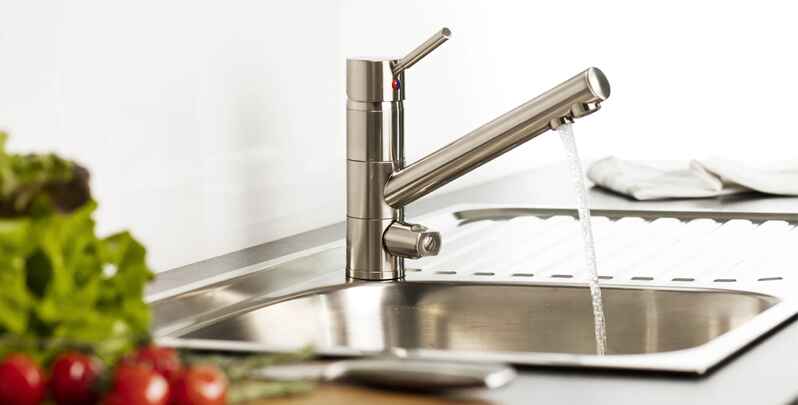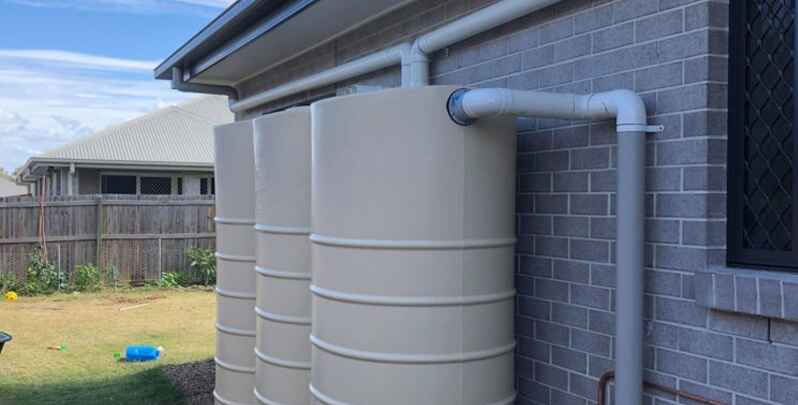
Conserving Our Most Precious Resource
Water is a precious resource. With increasing concerns about water scarcity and environmental impact, we all must do our part to conserve water. Not only does conserving water benefit the environment, but it also helps us save money on utility bills and reduces energy consumption.
Discover ways to optimise your toilet tank, avoid overloading municipal sewer systems, and reduce water usage with cold water techniques. Find out how to save water when heating, watering plants, and dealing with frozen foods. Let’s dive in and learn how to positively impact water conservation.
1. Fix Leaks and Dripping Taps
The constant sound of a dripping tap might seem minor, but it can lead to substantial water wastage over time. Fixing leaks and repairing dripping taps is one of the simplest and most effective ways to save water in your home. And you’ll notice the difference on your water and energy bills.
2. Upgrade to Water-Efficient Appliances
Consider investing in water-efficient appliances like low-flow showerheads, water-efficient dishwashers, and front-loading washing machines. These appliances use significantly less water without compromising their functionality.
3. Shorter Showers, Greater Savings
Encourage your family members to take shorter showers. Reducing shower time by just a few minutes can save gallons of water every week. Consider setting a timer in the bathroom to make it a fun challenge for everyone. Heating water also adds to your energy bills, so you’ll notice the savings.
4. Use a Cistern Displacement Device
Toilets are among the largest water consumers in a household. Placing a cistern displacement device, like a plastic bottle filled with water or a specialised bag, can reduce the water used for each flush.
5. Collect Rainwater for Plants
Install rain barrels to collect rainwater from gutters and use it to water your plants and garden beds. Rainwater is naturally pure and chemical-free, making it an eco-friendly alternative to tap water for plants.
6. Opt for Water-Efficient Landscaping
Choose native plants and drought-resistant landscaping for your garden. These plants require less water and can thrive even during dry spells.
7. Conscious Food Preparation
Be mindful of water usage while preparing meals. Instead of letting the tap run, rinse fruits and vegetables with a basin. You can also reuse rinse water to water your plants.

8. Run Full Loads
Always run full loads to maximise water efficiency, whether it’s your dishwasher or washing machine. Running half-empty loads wastes gallons of water unnecessarily.
9. Pool Covers for Minimal Evaporation
If you have a swimming pool, use a pool cover when not in use. This will significantly reduce water evaporation, keeping your pool water levels stable.
10. Embrace a Plant-Based Diet
Believe it or not, a plant-based diet benefits your health and the environment. Livestock farming is water-intensive, so reducing your meat consumption can help conserve water on a larger scale.
11. Mindful Lawn Maintenance
Avoid overwatering your lawn, which can lead to waste. Instead, give your lawn a deep soak less frequently, allowing the water to penetrate deeper into the soil and encouraging stronger root systems.
12. Check Your Water Meter
Keep an eye on your water meter regularly to monitor your water usage. If you notice any significant spikes, promptly investigate and address the issue to prevent water wastage.
13. Reuse Rinse Water
After rinsing dishes or clothes, collect the rinse water and repurpose it for tasks like mopping the floor or flushing the toilet.
14. Insulate Your Water Pipes
Insulating hot water pipes reduces heat loss during transportation, resulting in lower energy consumption to heat the water.
15. Avoid Water-Polluting Practices
Never dispose of chemicals, paints, or other pollutants down the drain. These harmful substances can contaminate water supplies and cause severe environmental damage.
16. Use Soapy Water Sparingly
When cleaning around the house, use soapy water sparingly. Too much soapy water leads to more water required for rinsing.
17. Recycle Plastic Bottles
Recycle plastic bottles and other containers rather than throwing them away. Recycling reduces the demand for new plastic production, which consumes large amounts of water.
18. Install Low-Flow Fixtures
Replace traditional showerheads and faucets with low-flow alternatives. These fixtures reduce water flow without compromising water pressure.
19. Educate Others on Water Conservation
Share your knowledge about water conservation with friends and family. Small changes made by many can have a significant impact on water usage.
20. Seek Professional Plumbing Assistance
When faced with leaks or water damage in your home, don’t hesitate to seek professional emergency plumbing assistance.
Promptly addressing leaks conserves water and prevents potential structural damage and mould growth. A small leak left unattended can escalate into a major problem, wasting gallons of water and significantly impacting your water bill.
Licensed plumbers have the expertise to identify and repair leaks efficiently. They can also offer valuable advice on preventing future water-related issues, such as installing leak detection systems or upgrading to water-efficient plumbing fixtures.
You save water and protect your home from potential water-related disasters by getting timely plumbing assistance.
Moreover, during plumbing maintenance visits, ask your plumber to check your system for any inefficiencies or opportunities to further optimise water usage.
Simple adjustments, such as fixing water pressure or adjusting the flow rate, can substantially affect water conservation.
Conserving water is a responsibility and an opportunity to contribute to a sustainable future. By implementing these water-saving tips in our daily lives, we can make a difference and ensure that generations can access this precious resource.
Every drop counts; we can create a brighter, water-efficient world together.

Take Action Now: Get Water-Saving Solutions with Mr Emergency
Water conservation is a pressing global concern, and it starts with making conscious choices in our daily lives. Conserving water saves energy in your home, and you can always take meaningful steps towards a more sustainable future.
Through our expert plumbing services, we aim to empower homeowners with the knowledge and tools to impact water conservation positively. We help our customers save water, energy, and money on utility bills by addressing potential leaks and inefficiencies.
Remember that conserving water saves this valuable resource and contributes to energy savings and a greener environment. By reducing water consumption, you are playing a part in keeping drinking water supplies, minimising water loss through wasteful practices, and ensuring the sustainable growth of water-dependent plants.
Take advantage of water-saving features and techniques, such as using a spray device, minimising water footprints, and using dish racks, to further enhance your water conservation efforts. Every small action counts, whether saving five to ten gallons per use or being mindful of the water-intensive foods we consume.
Now is the time to take action and make a difference. Embrace a water-conscious lifestyle, educate others about the importance of conserving water, and advocate for sustainable water practices in your community.
With the collective efforts of individuals like you, we can protect our precious water resources and create a more sustainable and resilient future for all.
Choose Mr Emergency as your partner in water conservation, and let’s work together to make a lasting impact. Start conserving water today and be a part of the solution for a better tomorrow.
Please note: This information is provided for advice purposes only. Regulations differ from state to state, so please consult your local authorities or an industry professional before proceeding with any work. See our Terms & Conditions here.


